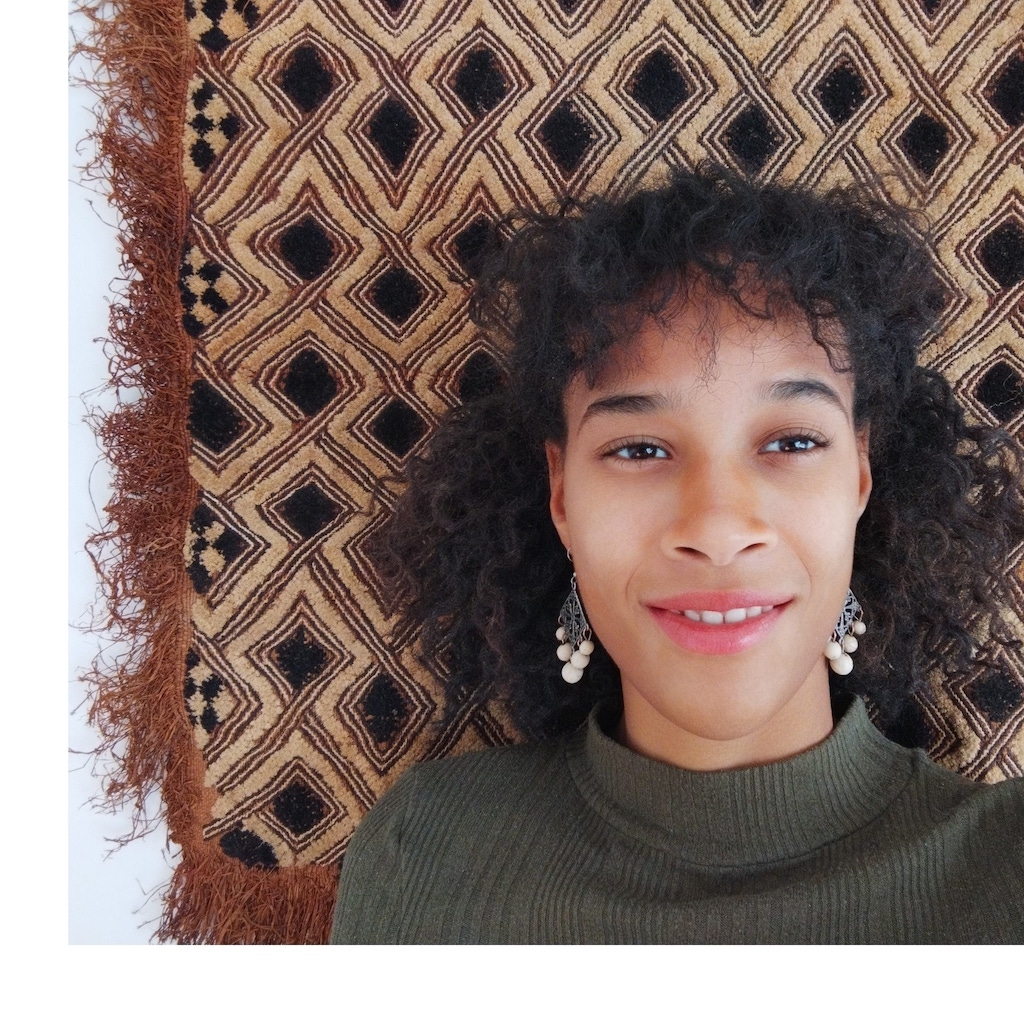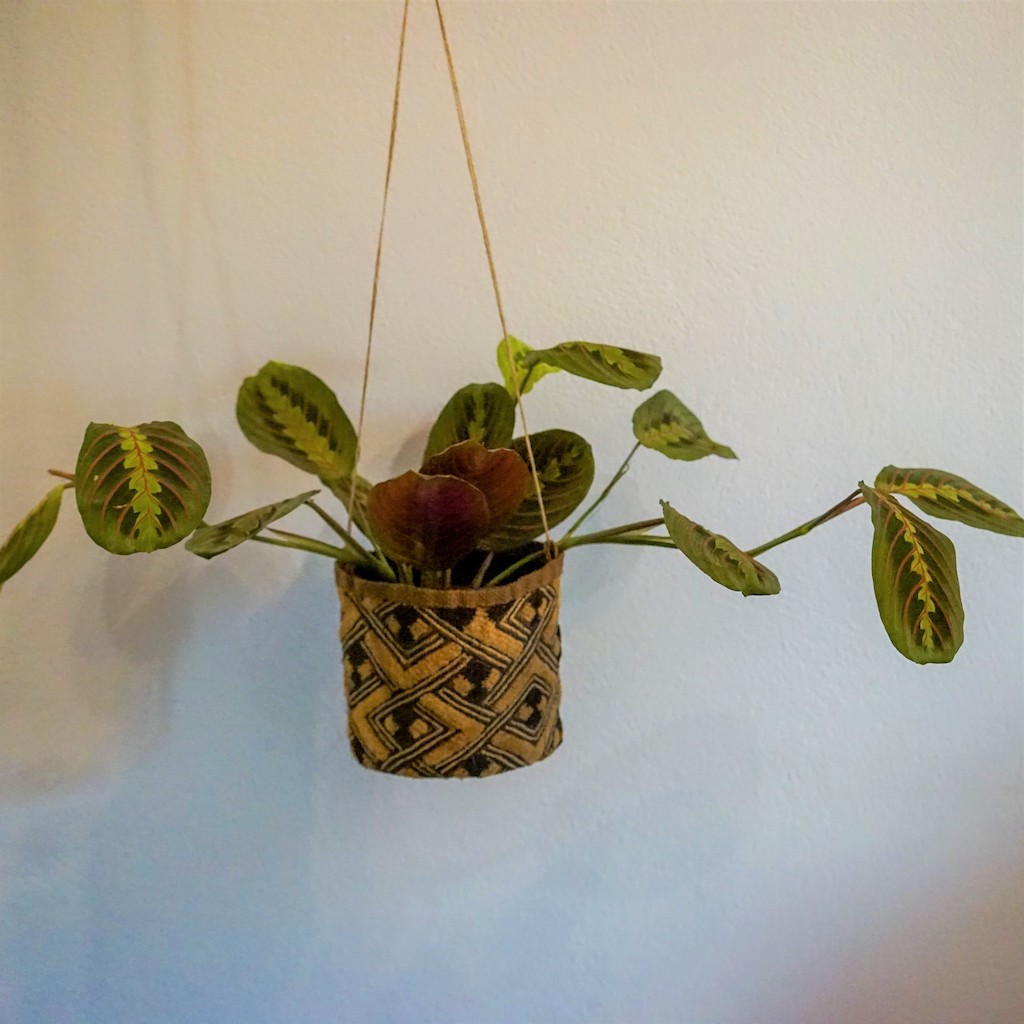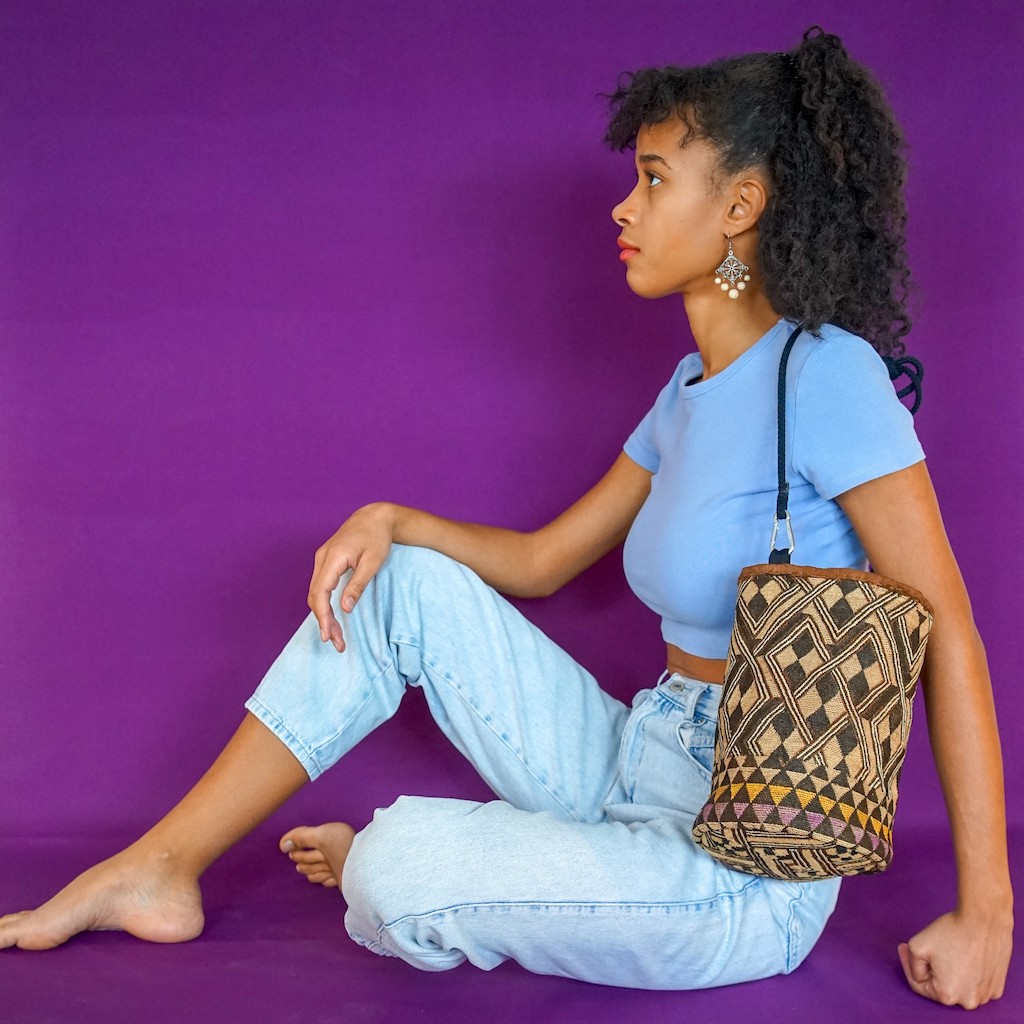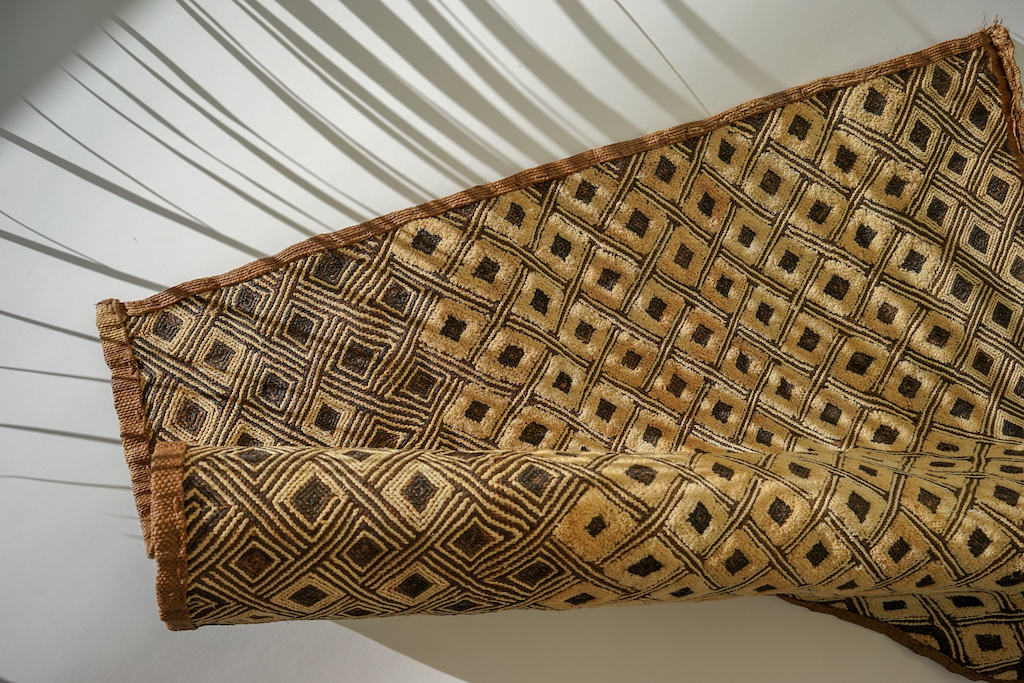February 4, 2022 - TCN contributor Ivan Rubil introduces Shoowa, unique Kuba cloth products from the Congo Basin, created by German-Congolese designer Malaika Paulini in Split.
Our planet has been growing more dynamic with each new idea. While some of them stay inside provisional boundaries of business and culture, others are by nature seeking to explore, connect and bring joy. One of these ideas was launched by a German-Congolese funky designer named Malaika Paulini and has now landed in “the most beautiful city in the world” - Split, Croatia.
Her project SHOOWA ( www.shoowa.eu ) revolves around redesigning traditional Kuba cloth that comes straight from the Congo Basin. A distinct trait of the project is giving-back, donating a proportion of the profits to empowerment programs in the Democratic Republic of the Congo. The result is a cyclical fashion enterprise, rooted in sustainable and recyclable material - a revolution in its precise sense.

Since childhood, Malaika has connected with her Congolese heritage as if it were through an internet modem of the 1990s. She listened to her father’s stories about the Congo and cherished memories from her visit there when she was a teenager. Deciding to have that connection become broadband, she returned to the DRC with a vision. She had discovered the existence of Kuba textile, the elaborate and geometrically complex cloth of the Congolese Kuba culture.
“One of the branches of Kuba textile comes from the Shoowa tribes, who mastered the cut-pile embroidery technique,” she tells me as my fingertips encounter this firm fiber. It is an intriguing fabric by its production - traditionally requiring all-gender engagement, coming from a sustainable source of the replenishable raffia palm. In it, the designer sees “an unfolding process that folds back in full circle, being considerate to the producer, the consumer and the material.”
A set of eyes will certainly be struck with the suggestion that a palm leaf has metamorphosized into this intricate pattern, reminiscent of Picasso’s geometry. “Quite a visible connection, isn’t it?”, she replies, “alongside Henri Matisse, Picasso found inspiration in Congolese artcraft. There is real brotherhood in how abstract structure is stressed both in Cubism and in the Shoowa.”
Observing the plethora of the Shoowa patterns truly stretches the possibilities of geometry. The patterns possess a fractal quality by nature - each being a testament to the expressed imagination of its creator. “I’ve gone through thousands of patterns and still haven’t seen two for which I’d say are alike. It’s such a driving force for me to know that each piece of the Shoowa cloth is unique and unrepeatable," she says.

Zooming out of the patterns, Malaika is reminded of the warmth of the Dalmatian sun. She moved to Croatia in early 2021 to pursue her business project. It’s quite rare to encounter a German expat working in Croatia, as the dominant migratory destination in this international relationship is Germany.
She says about moving to Croatia: “This is such a tranquil place for working. I’ve decided to bring the fabric here to be closer to a friend who’s teaching me how to do advanced sewing. After work, there’s an immediate reward in the form of a sunny day. I hope I can grow my business so I can have the same reward in the Congo one day.”

Ante Matas
“People from Southeastern Europe are large and visible demographic groups in Germany. I knew this was a beautiful country with a warm coast, but I also knew Croatians' doubts about career opportunities here. However, I have stumbled upon dozens of small, creative businesses in Croatia and Split that radiate liveliness. I’ve even contacted a few for collaboration, for which I’m always open. I think Croatia is now a place of well-spoken English and of educated young people. It seems to me there’s more than hope here that the country will prosper in the future," she concludes.
Croatia is often perceived as a homogeneous country, with over 95% of the population declaring themselves as ethnically Croatian. So it’s fair to say that Malaika is noticeable as she roams the Split streets devoid of visitors due to the Covid-19 pandemic. She isn’t a visitor anymore, but a resident. A question lingers which some would rather avoid, but many would like to know - does she feel welcome here?
“I rarely feel I’m being singled out. I have experienced a few comments I felt were beneath people’s dignity. However, for each of those specks, there has been a whole Adriatic sea of kindness towards me. Some people are indeed surprised to see me, but in general, I think Croatians are far more mature in communicating with foreigners than they sometimes think they are. For me, there is a definite sense of normalcy and calm here.”

“This is a joy-owned business founded and managed by a Black woman," she replies when asked about herself as a founder of a Black-owned business, “My focus is on promoting the sustainability of African handcraft. Our European societies are now trying to build a sustainable future, and I feel we have to be inspired and learn from our world’s traditions. That’s what I want people to think of when they think of Africa in the future. Shoowa has a role in this endeavor.”
The Congo, Germany, and Croatia. A catalyst can connect these seemingly distant cultures in one place, one idea, even sew them into one and the same fabric. The catalysts - it is us. One day, people might conclude we have been of the same fabric since the beginning.
Author: Ivan Rubil
For more, check out our lifestyle section.


